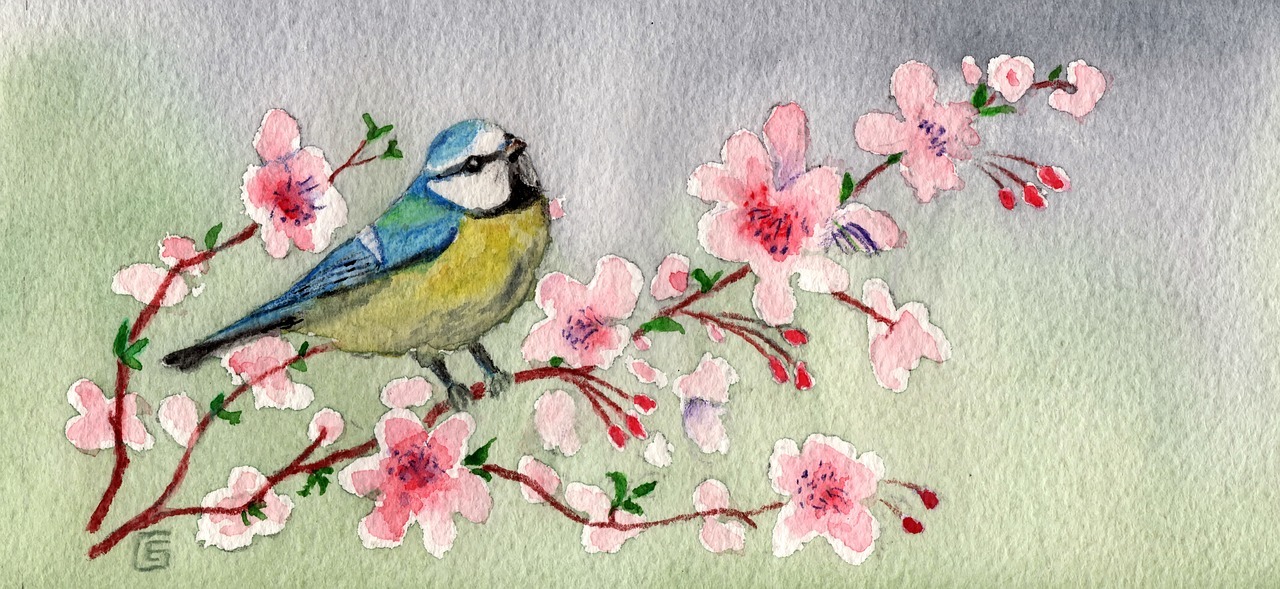Dear Readers,
Cherry blossom buds have appeared around the Tidal Basin here in Washington, DC, and the expected date for peak bloom was announced today!
BREAKING NEWS! ?Peak bloom for the cherry blossoms has been predicted for April 3 – April 6! The 2019 @CherryBlossFest is March 20 – April 14. Visit https://t.co/NZSiy9fa7n for the full schedule of events! #springblossomshere @NationalMallNPS pic.twitter.com/Hf37Vj07pI
— The Official NCBF ? (@CherryBlossFest) March 6, 2019
This breaking news from the National Cherry Blossom Festival also seemed to me a great symbol for the stories we feature here in Issue Six. The articles you’ll find in this issue all point somehow to a way forward through the process of disintegration. In each story, our authors start in some form of metaphorical winter that eventually gives way to to buds, and then finally, to blooms:
In Getting Acquainted with a Stranger, new contributor Benita Jeanelle tells the story of her disintegration and reintegration. Starting as an intense, driven child who could achieve through sheer force of will, she eventually constructed of a collection of facades that allowed her to maintain her primary integration—until the tension became too much. Her story highlights the often overlooked fact that while overexcitability is the fuel of Dabrowskian disintegration, it’s not something you must be condemned to live with forever, at least not in its most acute form.
In Sustainable Intensity and Self-Compassion: A Mindful Perspective, new contributor Dr. Kelly Pryde, a neuropsychologist, coach, and founder of the Gifted Mindfulness Project at InterGifted, discusses the challenges she and her clients have faced as they strive to live effectively with intensity. If we’re aiming for positive disintegration and reintegration, does taking action to lessen our suffering necessarily mean we lose the opportunity for growth? Dr. Pryde shares some thoughts on healthy practices that can help intense people harness their developmental potential without burning out in the process.
In Transformative Life Experiences Through the Decision-Making Process, Krystyna Laycraft follows up her piece on chaos theory to explore how our major life decisions are opportunities for us to apply Dabrowski’s higher level dynamisms and progress toward the higher levels of personality. She brings her theory to life by exploring her own choice to move from Canada back to Poland as Communism fell in her native land.
And in The Creative Intelligence Agency, I share the story of my efforts to apply divergent thinking as a CIA analyst and sit down with Nyssa S., one of the instructors of the CIA’s “Creativity in Intelligence” course, to discuss the key role of divergent thinking in what is otherwise a highly convergent organizational culture.
Share Your Way Forward: Themes for Issue Seven and Beyond
Each of the stories above investigates what happens in the space between that first bud of something higher in our consciousness and the full blossom it’s on track to become. Of course, that could be said about any story of growth and development, including those that aren’t published in spring issues that allow editors who are also former residents of Japan to make use of any excuse to slather cherry blossom pictures all over everything.
So if you have your own bud-to-blossom story to share, it’s not too late to submit a proposal for an article through the Contact page. We already have a few more stories of ways forward through Dabrowskian disintegration lined up for Issues Seven (May/June, tentatively on the theme of “Creating the Self,” with a deadline for proposals of June 1 and drafts June 15) and Eight (July/August, likely to be on one of the themes below). All you potential writers should know that while I may announce a formal theme ahead of time in a call for submissions, the final theme of any given issue ultimately depends on what people have to share. Therefore, you are always free to submit an idea for an article even if it doesn’t fit an upcoming theme. So to get you thinking, here are some of the themes we’re considering for the next few issues:
- Work, entrepreneurship, and the corporate sphere: opportunities for reintegration
- Exploring Dabrowski’s factors of development – whether the first, second, or third factor
- Spirituality and reintegration
- Relationships for the overexcitable, gifted, and intense: including the romantic, familial, friendships, colleagues, et cetera
On top of those, there are quite a lot of other ideas I’d love for Third Factor to explore. If you’d like to play an active part in the conversation about topics, I invite you to head on over to the forum, and especially this thread. I know the forum has been quiet, in large part because I haven’t had the spare time to engage there; happily, now that we’re publishing bimonthly, I have a little more bandwidth to spare. So if you’re interested but waiting for others to start conversations, I hope you’ll jump in and engage.

For those of you who don’t have anything in mind to write about but would like to get involved in our content, I will soon be posting a formal call for guest editors and editorial interns. Chris Wells has stepped away from editorial duties here to pursue another opportunity—one at which we know she’s going to shine—which in turn opens space here at Third Factor for aspiring editors to give the role a try. I’ll follow up later this month with a formal description of the role, so if you’re interested or know someone who might be, keep an eye on your inbox and social media feed.
Support Third Factor’s Contributors
So far, all the articles you’ve seen here have been written and edited on a volunteer basis. We’re truly grateful to those of you who have donated to our Patreon and to our launch funding campaign on Indiegogo, which enabled us to cover our web hosting and other start-up costs and put a small amount in the bank. What I’d really like to do next is start offering our contributors compensation for the work they put into their articles. We’re not quite there yet, but you can help us get there! If you like what you’ve seen in our first six issues, would you consider offering financial support? We’ve got two platforms set up, so you can pick the one that works best for you:
- Patreon: With this service, you can make a monthly pledge, thereby providing a reliable stream that I can count on to offer payment to writers. Keep in mind that since we publish bimonthly at present, the amount you’d be paying for each issue is effectively double your monthly pledge. If you donate through Patreon, you will also have access to occasional patron-only posts and discussions.
- Paypal: Here you can make a one-time contribution by going to PayPal.me/ThirdFactorMag, or you can set up a monthly recurring donation.
My deepest thanks to those of you who have already given. It’s made a significant difference already!

Looking Forward, Past the Chill
It’s 27°F outside here in Washington as I write this, but looking forward to the blossoms that will bloom around the Tidal Basin in just a few weeks, I’ll leave you with this thought from the chief horticulturalist of the National Park Service, brought to us by the Washington Post:
“[Cold temperatures] are actually good from the perspective of the festival in that the opening of the cherries and their development through the blooming period is a biological process which is slowed down by cooler temperatures,” DeFeo said. “Therefore, the cooler temperatures are going to prolong the blooming period…” Only extraordinarily cold weather could damage the blossoms, with temperatures dropping into the teens, DeFeo said.
Readers, I wish you a cold enough March to bring you a long bloom in April. In the meantime, enjoy the issue, and send me your ideas!
All the best,
Jessie Mannisto
Editor in Chief




